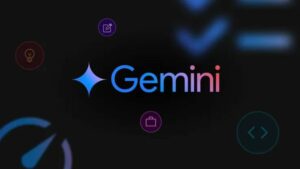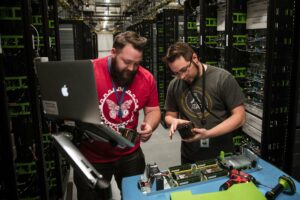Turnitin: Millions of university papers written with AI

It’s one of the biggest fears in education today: learners writing their papers using AI. Now it seems to be confirmed that a massive number of AI theses are in circulation. Turnitin, a service that checks papers for plagiarism and is used in universities across Europe, says its detection tool has found millions of papers that may contain a significant amount of AI-generated content, Wired reports.
More than 22 million works with AI help
Last year, students submitted more than 22 million papers that may have used generative AI, according to Turnitin. A year ago, Turnitin launched an AI font recognition tool trained on its inventory of student-written papers and other AI-generated texts. Since then, the detector has checked more than 200 million papers, mostly written by schoolchildren and students.
According to the analysis, 11 percent of papers could contain AI-generated language in 20 percent of their content, with three percent of all papers reviewed with 80 percent or more AI writing marked accordingly. Tools like ChatGPT can be used to “help” with work, but this can come with many problems. Not only could it be seen as cheating or a lack of effort on the part of the students, but AI hallucinations can also cause serious mistakes.
“Word spinners” make AI recognition difficult
Detecting the use of generative AI is difficult. It is not as easy as detecting plagiarism because a generated text is still an original text. Some students ask chatbots to write most or all of their work for them, while others use the tools as tools or brainstorming partners. So-called “word spinners” make the recognition of AI texts even more difficult. This is another type of AI software that rewrites AI text, making it less obvious.
Turnitin recently updated its detector to detect such word spinners. It can also flag work that has been rewritten by services like spell checker Grammarly, which now has its own generative AI tool. As familiar software increasingly contains generative AI components, it is becoming increasingly confusing what students can and cannot use.
Turnitin wants to show the nuances of generative AI
The detection tools themselves pose a risk of bias. A 2023 study found a failure rate of 61.3 percent when evaluating TOEFL (Test of English as a Foreign Language) exams with seven different AI detectors. However, the new version of Turnitin was not included in the study. A study published in October found that Turnitin was among the most accurate of 16 AI speech detectors in a test that examined student work and AI-generated work.
According to Annie Chechitelli, Chief Product Officer at Turnitin, the tool is not intended to be the only criterion for passing or failing students. Instead, it is an opportunity for teachers to start conversations with students that reveal all the nuances of generative AI. “People don’t really know where the line should be,” she says.






























